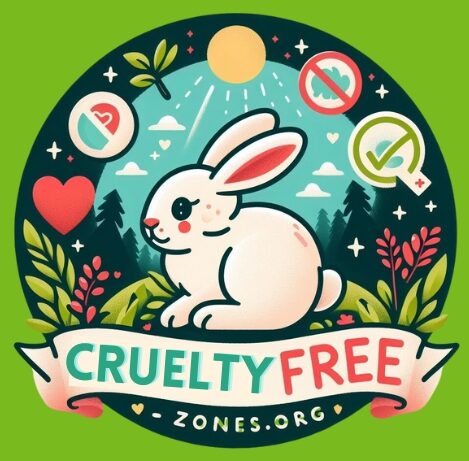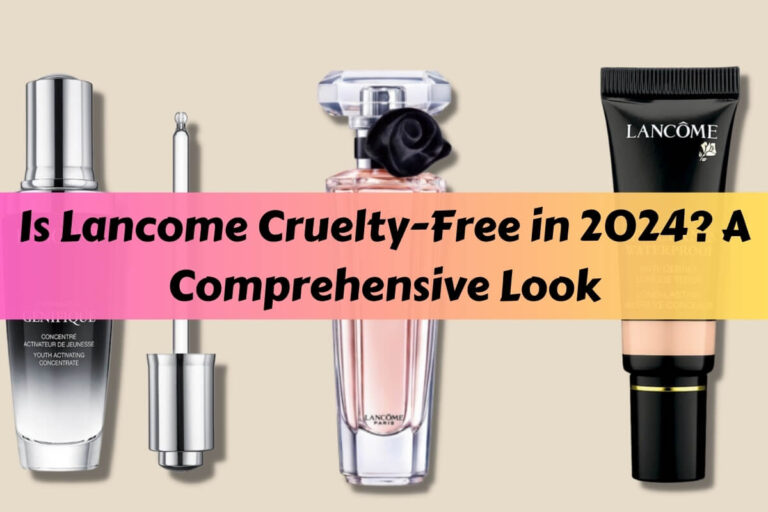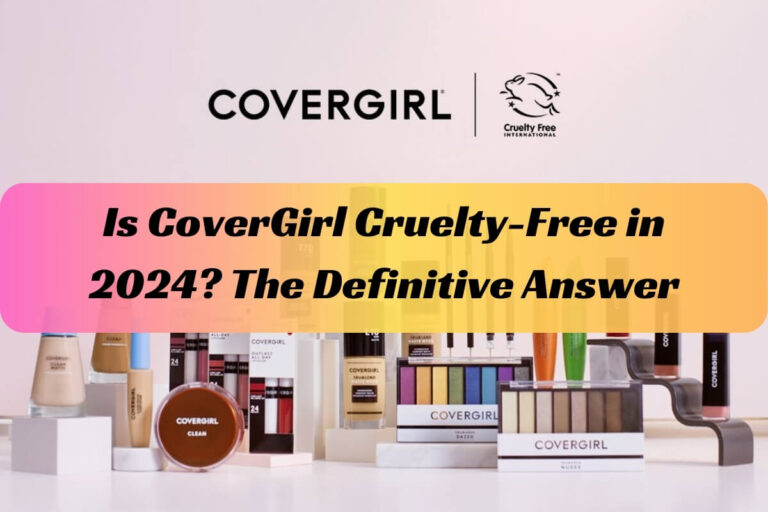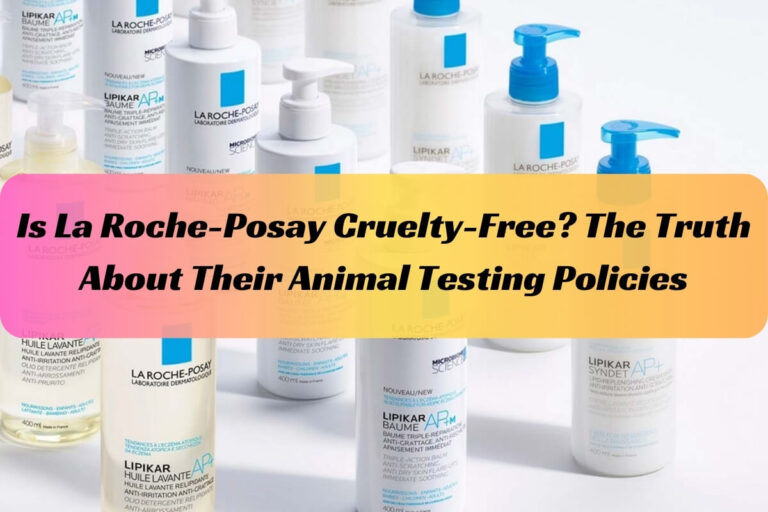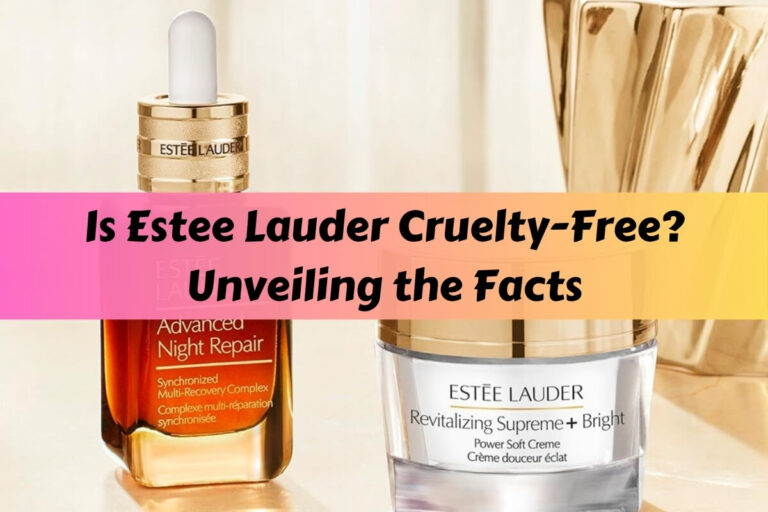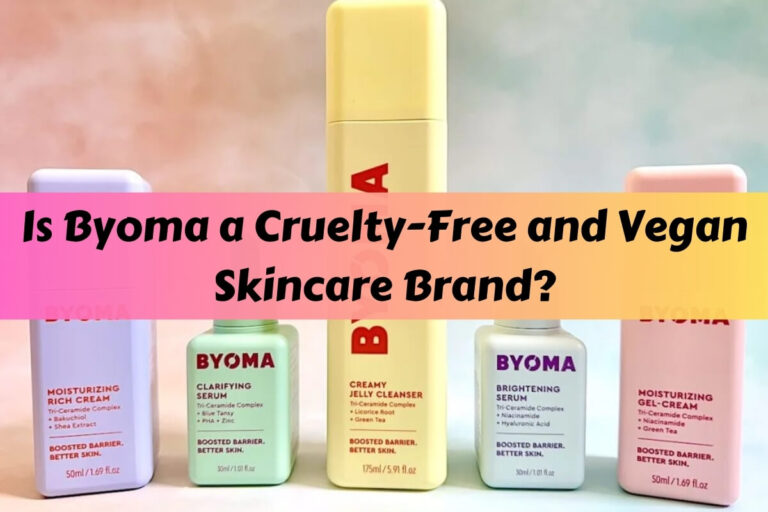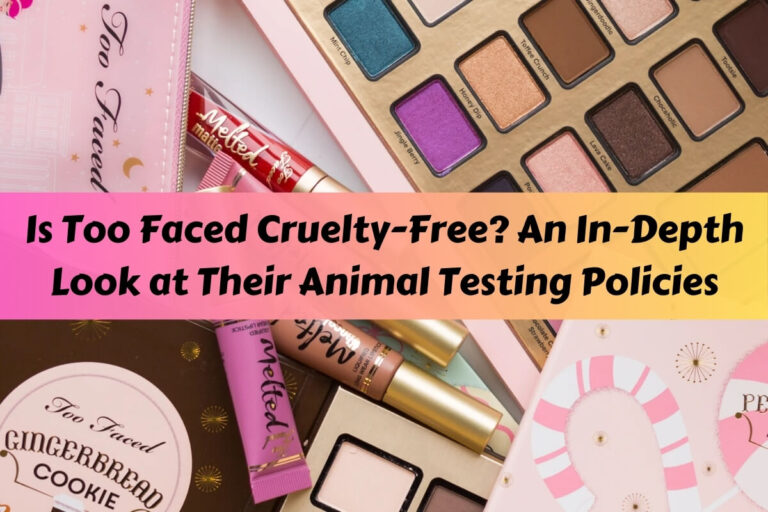Is NYX Cruelty-Free? Guide to Animal Testing at NYX Cosmetics
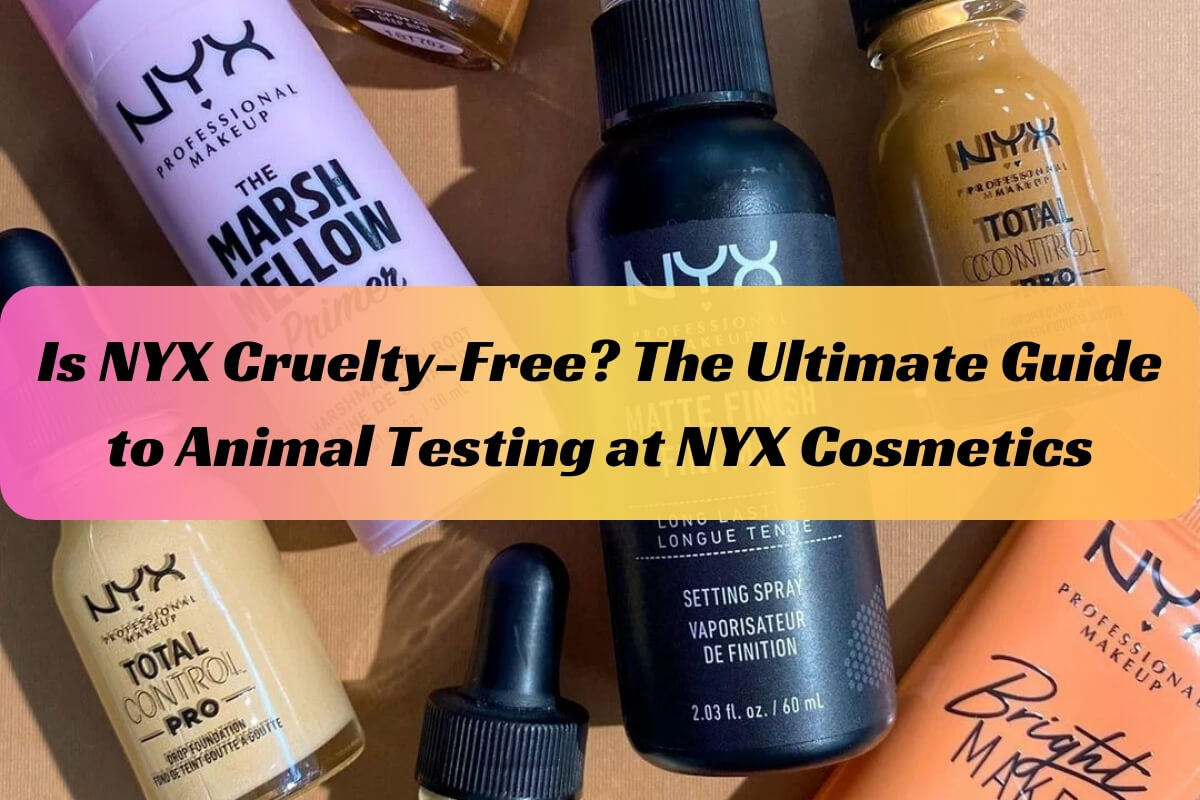
Do you love experimenting with makeup but want to ensure the products you use are cruelty-free? As more consumers become conscious of animal welfare, the demand for cruelty-free cosmetics has skyrocketed. This guide will examine whether NYX, a popular drugstore makeup brand, is truly cruelty-free and address other ethical considerations surrounding its products.
From their policies on animal testing to the vegan status of their makeup range, we’ll cover everything you need to know about NYX’s cruelty-free claims. We’ll also explore alternative brands if NYX doesn’t align with your values as a conscious consumer.
What Does It Mean to Be Cruelty-Free?
Before diving into NYX’s policies, let’s establish what it means for a cosmetics brand to be considered cruelty-free.
Cruelty-free generally refers to products that are not tested on animals at any stage of development, from the individual ingredients to the final formulation. This means no animals were harmed or exploited during product testing or manufacturing.
To verify a brand’s cruelty-free status, look for certifications from reputable organizations like Leaping Bunny or PETA’s Beauty Without Bunnies program. These groups have strict standards that brands must meet to earn their cruelty-free seal of approval.
Is NYX Officially Certified Cruelty-Free?
While NYX claims to be a cruelty-free brand, its certifications tell a more nuanced story.
NYX is certified cruelty-free by PETA, meaning the brand itself doesn’t test on animals or allow third parties to test their products or ingredients on animals. However, NYX is not certified by the distinguished Leaping Bunny program.
Why the discrepancy? Leaping Bunny generally doesn’t certify brands owned by parent companies that test on animals, with a few exceptions. And NYX’s parent company, L’Oreal, does allow some of their other brands to test on animals in certain circumstances.
NYX’s Official Animal Testing Policy
Let’s look at NYX’s statements on their animal testing policies. From their website:
“NYX Professional Makeup is certified cruelty-free by PETA. We do not test any of our products or ingredients on animals, nor do we allow suppliers or third parties to test on our behalf.”
This policy aligns with PETA’s cruelty-free certification requirements. NYX clearly states they don’t engage in animal testing themselves, through suppliers, or via third parties hired for that purpose.
The Controversy Around NYX’s Parent Company L’Oreal
While NYX itself may be cruelty-free, there’s an ethical dilemma surrounding its parent company, L’Oreal. PETA has L’Oreal on its “do test” list because while L’Oreal claims not to test its products or ingredients on animals, they do pay for third-party animal testing in some cases.
As a massive global corporation, L’Oreal sells brands in China, where animal testing is legally required for most cosmetics sold in physical retail stores. So although NYX isn’t available in mainland China, some of L’Oreal’s other brands conduct the required animal tests to operate in that market.
This presents a challenging decision for ethically-minded consumers. Some choose to boycott all brands owned by parent companies like L’Oreal that allow any animal testing, even indirectly. Others are comfortable purchasing from cruelty-free brands within those portfolios, hoping it incentivizes the parent to move away from animal testing entirely.
There’s no universally “right” approach, but being informed about corporate structures and testing policies can help you make choices aligned with your values as a consumer.
Does NYX Sell Its Products in Mainland China?
One crucial factor in determining if a brand is truly cruelty-free is whether it operates in countries with mandatory animal testing laws, like mainland China.
NYX clearly states they do not sell their products in physical retail stores in mainland China, which makes sense given their PETA certification. Some brands attempt to bypass China’s animal testing laws by selling there through cross-border e-commerce channels only, but it’s unclear if NYX explores any sales through those loopholes.
If you’re committed to avoiding any brand with ties to the Chinese market, even indirect ones, then proceed with caution regarding NYX’s limited online sales there. But for shoppers who prioritize a brand’s direct policies over its parent company’s practices, NYX appears to meet cruelty-free standards by not offering products in mainland Chinese stores.
Cruelty-Free Makeup Alternatives to NYX
If you’d prefer to steer completely clear of brands owned by a parent company like L’Oreal that engages in any animal testing, even indirectly, here are some affordable 100% cruelty-free drugstore makeup brands to consider instead of NYX:
- e.l.f. Cosmetics: 100% vegan and cruelty-free, with an extensive range of makeup and skincare.
- Milani: A cruelty-free brand with a Leaping Bunny certification.
- Pacifica: Offers vegan and cruelty-free color cosmetics with an emphasis on clean ingredients.
- Mented Cosmetics: Black-owned brand focused on makeup needs for deeper skin tones.
While these brands may have higher pricing than NYX for some products, you can rest assured your purchases don’t financially contribute to any corporation that tests on animals.
Is NYX Vegan?
Beyond simply being cruelty-free, many consumers today also seek out vegan cosmetics free from any animal-derived ingredients or by-products. So where does NYX stand on offering vegan makeup?
NYX is not a fully vegan brand, but they do offer a range of vegan products marked on their website. Some of their popular vegan makeup includes:
- Born to Glow Liquid Illuminator
- Can’t Stop Won’t Stop Powder Foundation
- Butter Lipstick
- Glitter Goals Liquid Eyeshadow
NYX offers vegan products but also sells non-vegan products with animal-derived ingredients, so it’s not a fully vegan brand.
Non-Vegan Ingredients to Avoid
If you’re committed to a vegan beauty routine, here are some of the most common animal-derived ingredients to watch out for:
- Lanolin
- Beeswax
- Collagen
- Keratin
- Gelatin
- Carmine
- Guanine
- Honey
- Silk
- Squalene (shark-derived, but plant-based options exist)
- Animal fats and oils
Vegan Ingredient Alternatives
Fortunately, ethical companies have developed many plant-based and synthetic alternatives to replace animal products in cosmetics:
- Squalane from olives, wheat germ, or amaranth instead of shark squalene
- Agar agar or guar gum instead of gelatin
- Carrageenan derived from red seaweed instead of carmine
- Plant oils and waxes like shea butter instead of lanolin or beeswax
- Algae or fungi-based alternative proteins instead of collagen or keratin
100% Vegan Makeup Recommendations
For makeup lovers who want both cruelty-free and comprehensively vegan options, here are some excellent brands to explore as an alternative to NYX:
- Elf Cosmetics: 100% vegan drugstore brand with affordable pricing
- KVD Beauty: Vegan, cruelty-free, and packaging designed to minimize environmental waste
- Milk Makeup: Vegan formulas focused on clean, good-for-you ingredients
- Thrive Causemetics: Vegan and cruelty-free with a charitable giving model
Other Ethical Considerations for NYX
Beyond just cruelty-free and vegan status, conscious consumers may also care about a brand’s stances on sustainability, ethical ingredient sourcing, and avoiding toxic or questionable components.
NYX and parent company L’Oreal have made public commitments to environmentally friendly practices, but they still have areas for improvement.
On the positive side, L’Oreal is a founding member of the Responsible Mica Initiative, aimed at establishing ethical and child labor-free mica supply chains. They’ve also pledged to make 100% of their plastic packaging refillable, reusable, or recyclable by 2025.
However, NYX products currently use a significant amount of virgin plastic packaging, and the brand doesn’t market itself as being free of potentially harmful ingredients like parabens or synthetic fragrances. So they may not meet all “clean beauty” standards for some shoppers.
How to Verify a Brand’s Cruelty-Free Status
While official certifications and brand statements are helpful, conscious consumers should also feel empowered to investigate a company’s cruelty-free claims themselves. Here are some tips:
- Read the brand’s animal testing policy thoroughly on their website, looking for any loopholes or fine print.
- Search for customer reviews and discussions about the brand’s ethics from the cruelty-free community. First-hand reports can reveal inconsistencies.
- Don’t just take a brand’s word for it – email or call to ask specific questions like:
- Do you test finished products or ingredients on animals?
- Do any suppliers or third parties test on animals for your products?
- Do you conduct animal testing to sell in countries where it’s legally required?
- What formal policies and monitoring systems do you have against animal testing?
- Check for updated cruelty-free certifier lists annually, as brands can be added or removed based on new findings.
Stay curious and keep an open dialogue with brands. Their policies can change over time, so it’s important to revert to their cruelty-free status periodically.
The Bottom Line on NYX’s Cruelty-Free Claims
To summarize the key points about NYX’s stance on animal testing and use of animal-derived ingredients:
✓ NYX is certified cruelty-free by PETA, meaning no animal testing is performed by the brand itself, suppliers, or third parties.
✗ However, NYX’s parent company L’Oreal does allow some animal testing in certain circumstances for other brands in their portfolio.
✗ NYX is not a fully vegan brand, as some products contain animal-derived ingredients like beeswax and carmine.
✓ But NYX does mark its vegan product options, making it easier for vegan shoppers to find suitable makeup.
✗ While L’Oreal claims sustainability efforts, NYX packaging currently uses a lot of virgin plastic. The brand is not promoted as “clean” or free of questionable ingredients.
At the end of the day, whether you choose to purchase from NYX comes down to your personal values and ethical priorities as a consumer. Some may avoid the brand due to its connections to L’Oreal, while others are comfortable supporting NYX’s cruelty-free practices specifically.
Conclusion
The demand for cruelty-free and vegan beauty products continues to rise as consumers become more conscious about animal welfare and ethical consumerism. While NYX meets the basic criteria for being a cruelty-free brand, its status is complicated by its ownership under L’Oreal and lack of comprehensive vegan product offerings.
For shoppers who prioritize avoiding all brands with any ties to animal testing, there are plenty of affordable drugstore alternatives to explore beyond NYX. But if you’re willing to support cruelty-free brands owned by larger non-cruelty-free corporations, then NYX’s makeup could be a viable option when looking for affordable cruelty-free and vegan makeup selections.
Whichever you decide, stay informed about brand policies and certifications. The cosmetics industry is constantly evolving, so continuing to ask questions and make ethical choices aligned with your values is crucial as a conscious consumer.
